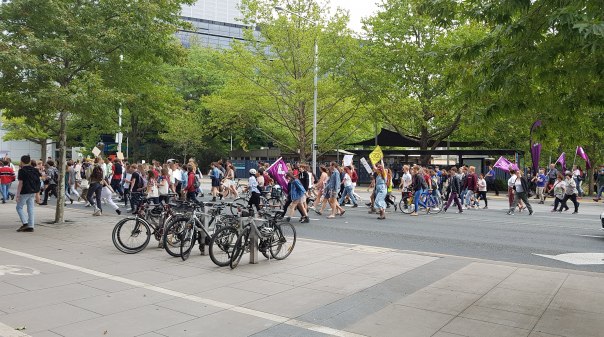I mentioned I was attending a workshop in Canberra on how to scope a scoping study for Humanities Arts and Social Sciences. The meeting, we were told was under Chatham Rules, which according to https://www.chathamhouse.org/chatham-house-rule means I can talk about the topic without identifying the speaker.
So, without direct access to my notes (which I will add later), and because I need to write a report for my university research office (who were kind enough to send me across the country and three or so time zones) here are my non-note observations:
We were told that NRIs could be equipment OR citizen science (but I assume the second one in Humanities acquires another term).

The group of invited senior academics (below Pro Vice Chancellors but mostly above heads of schools and garden variety professors like me) in the main agreed
- it was not clear why earlier reports (by AAH Humanities and the Social Sciences equivalent) were not acted on. The 2017 (2016?) report/recommendations will be circulated. AAH spent 800,000 plus on their scoping study.
- Most felt there needed to be federated repositories (especially for languages), and many felt a basic humanities data commons would be a good first step. It was proposed that there be nodes but this may not mean discipline or subject area, it might mean media type/format. I thought this was an important if confusing point, what do they mean by “node” and would it be at a host institute and NOT at a central/shared/state partner?
- Many agreed (with my point) that equipment without training was a silly idea but that universities should bear the costs of training their own people. I am in two minds over this. Something to think further on.
- Indigenous research should not be “ghettoized” (not my term, I am quoting here).
- Protocols, formats, standards, ethics should all be part of governance.
- Success stories, gaps/risks and opportunities should be part of the scoping study along with the governance mentioned above.
- I suggested a review of current Digital Humanities etc infrastructures be classed in terms of Success, near Success or near NRIs but may need help, and completely missing/gaps.
- It (the scoping study) should lead to a request for x (10?) explicit targets e.g. objects, things that go ping etc. But equipment is only part of the story.
- Film/AV collections were debated, the case made that this was not only about digitalization. Someone pointed out that mapping the sky (astronomy) was a form of digitization so why is it so frowned on in humanities circles?
- Trove was discussed as a success, a near (funding) failure, as useful, as not useful (unless you knew APIs), as an infrastructure, as not a research infrastructure etc. I suggested a member of a related GLAM institute (well at least one) be part of the scoping study even if NLA said that TROVE is not a research infrastructure as in not for researchers (primarily) it was discussed as if it was an NRI.
- The NRIS (National Research Infrastructure) scheme is changing in a few years, my question: to what, or what will replace it?
- The two Australian societies (AAH and the Social Sciences) will probably be asked for experts to run this scoping study.
Outside of the discussion people I spoke to agreed the Australian National Science and Research priorities were too applied and manufacturing-oriented but I heard that this might be revised (which might better suit both humanities AND fundamental science). I believe it should also encourage critical thinking and civic discourse/debate.
There will be funding for the scoping study.
